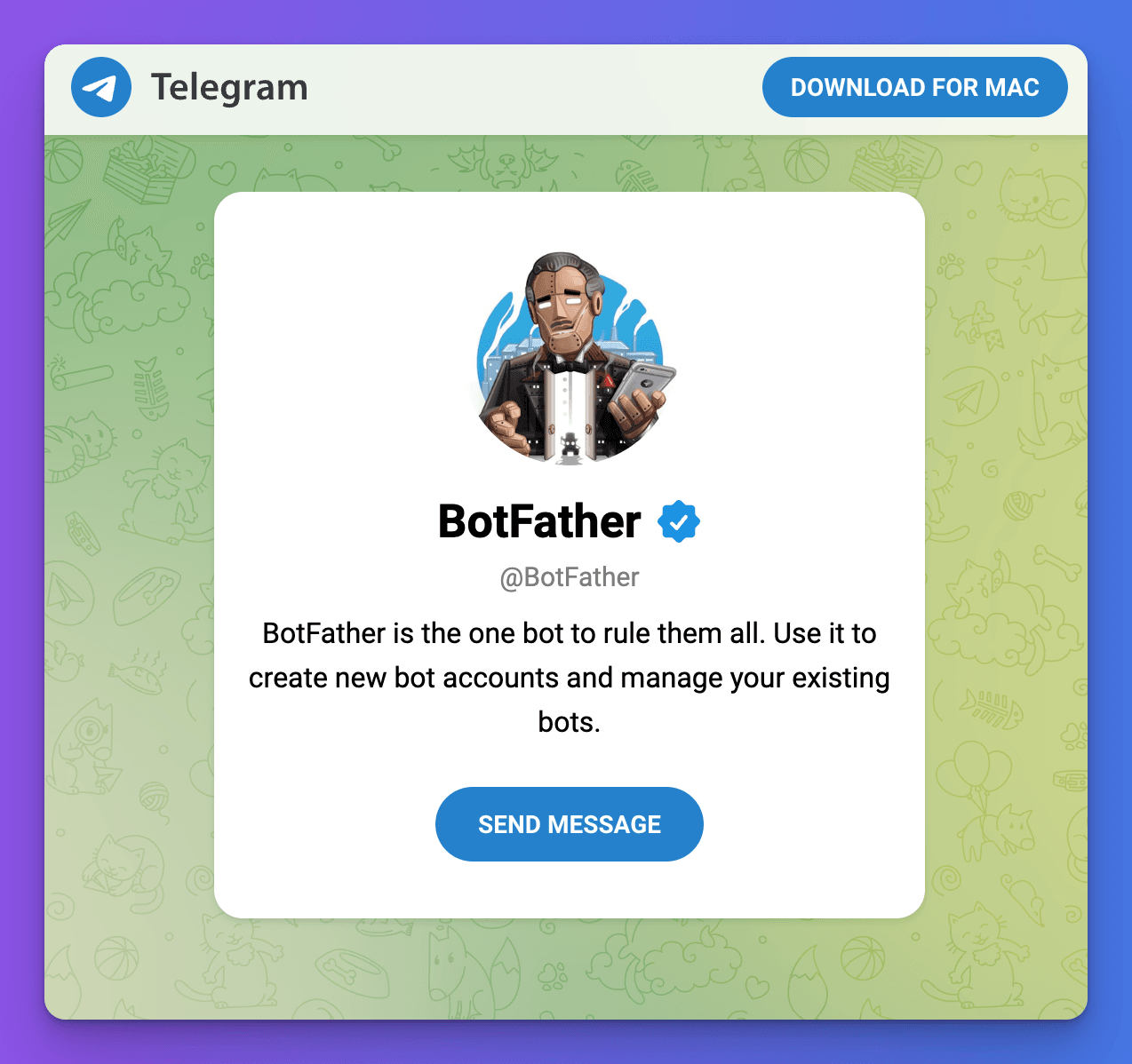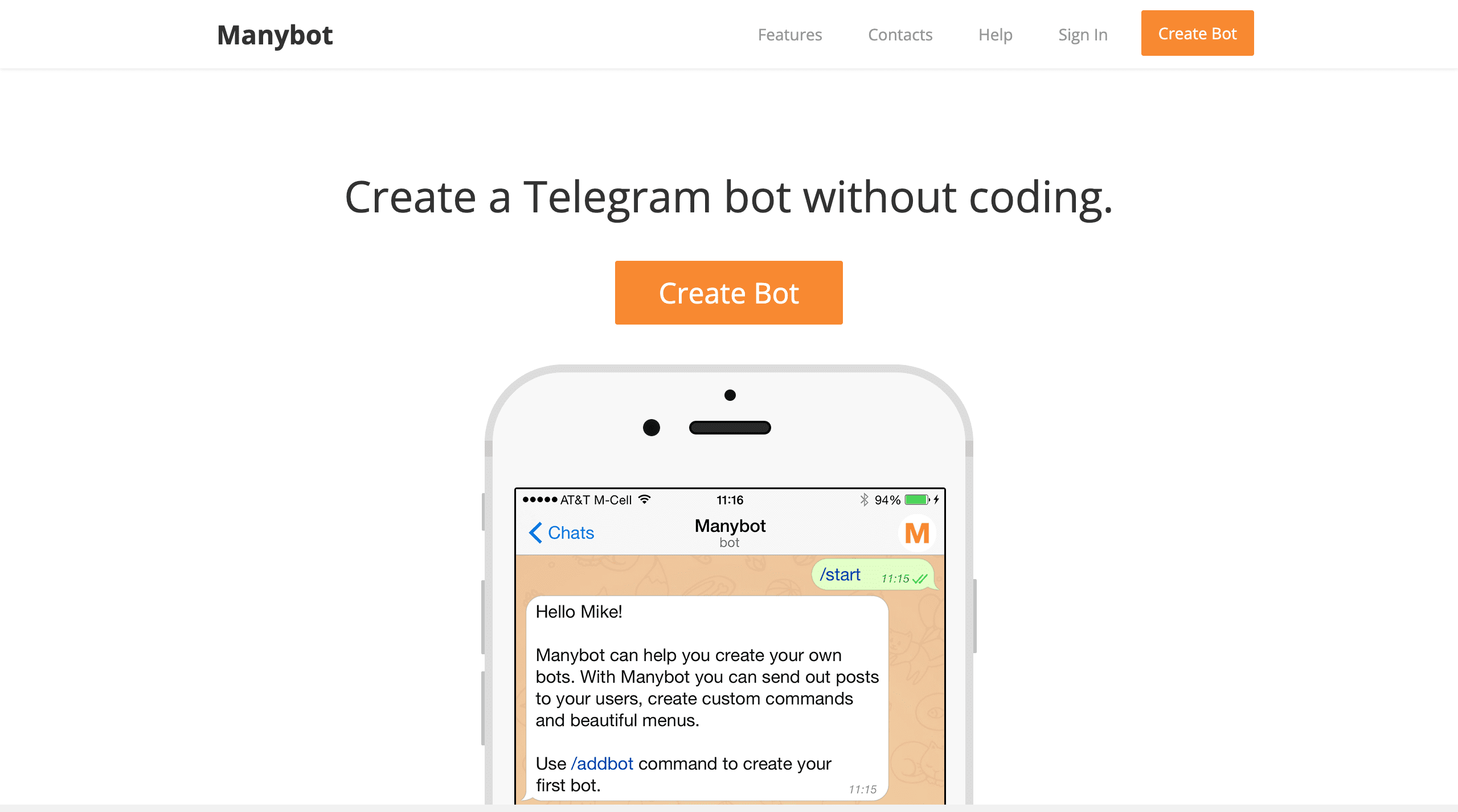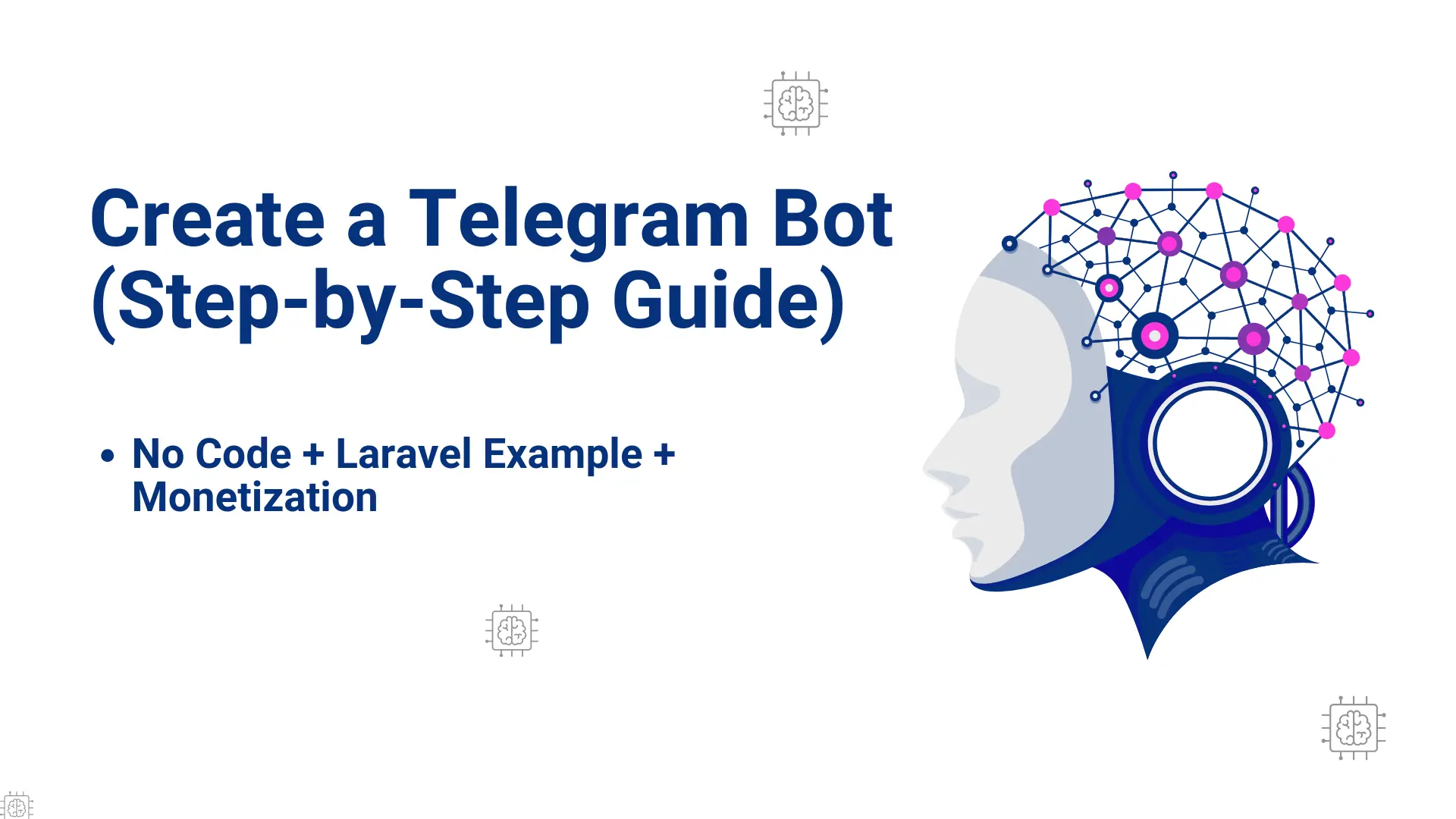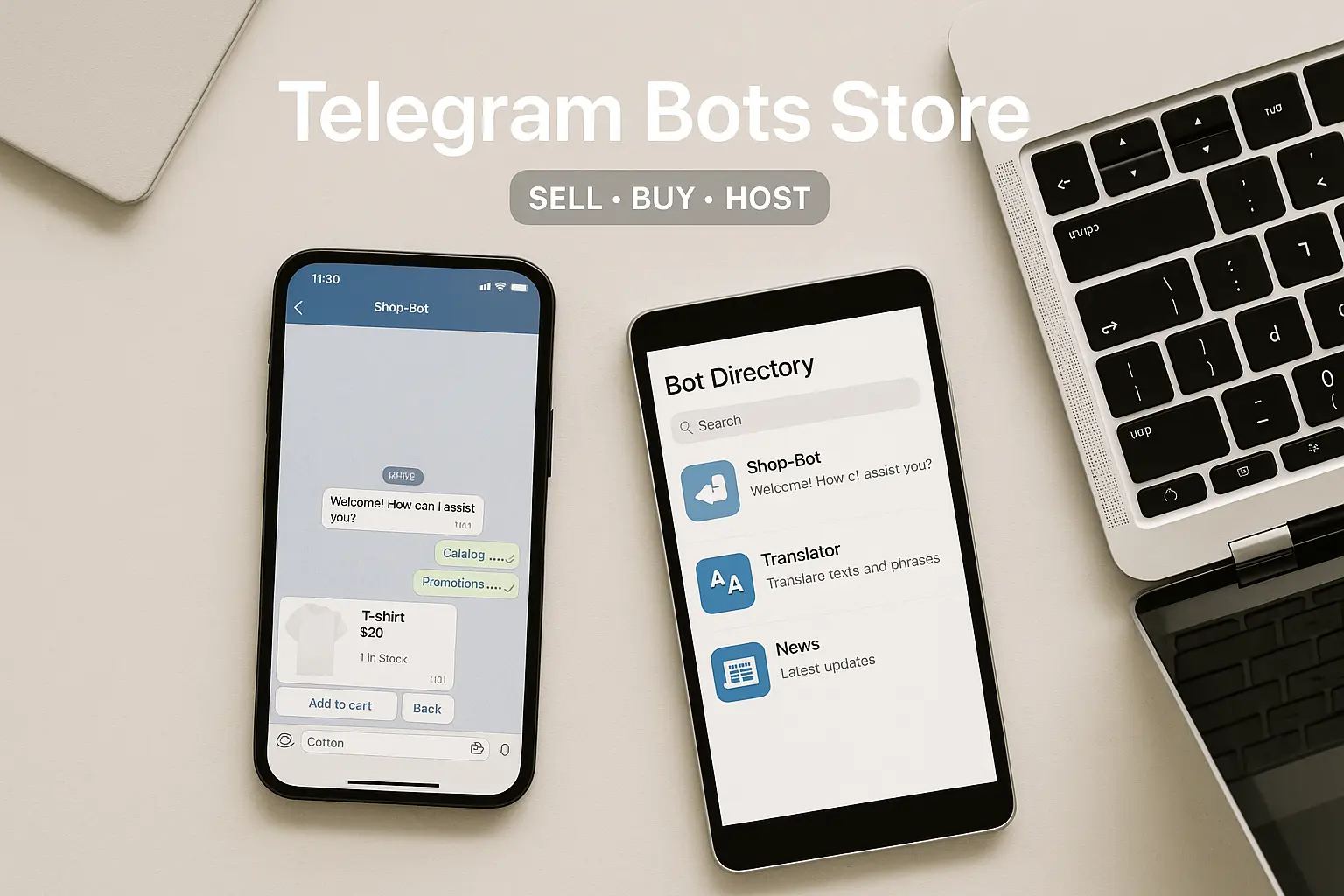TL;DR
Telegram bots let you automate tasks, build mini-apps, and monetize services inside Telegram.
This guide covers:
- Setting up a bot with BotFather
- Choosing between webhook vs polling
- Implementing a Laravel webhook (with example repo)
- Exploring no-code bot builders
- Monetization strategies
- Deployment & security tips
📥 Download the free Telegram Bot Launch Checklist to make sure you don’t miss any step.
Prerequisites (Accounts, Tools You Need)
Before creating your first Telegram bot, prepare these essentials:
- Telegram account (obviously).
- BotFather – the official bot creation tool provided by Telegram.
- Hosting/server – any HTTPS-enabled hosting for deploying your bot (shared hosting, VPS, or cloud).
- Programming setup (optional) – PHP/Laravel installed locally, or access to a server that supports PHP.
- Basic command-line knowledge – not mandatory, but helpful for developers.
💡 If you’re non-technical, you can still use no-code tools (we’ll cover those later).

Create a Telegram Bot with BotFather (Step-by-Step)
BotFather is the “mother of all bots” on Telegram. Every bot starts here.
Steps:
- Open Telegram and search for @BotFather.
- Start a chat and click /start.
- Use the command /newbot.
- Enter your bot’s name (display name).
- Enter a unique username (must end with “bot”). Example:
mycoolshop_bot. - BotFather will give you an API Token — save this securely.
This API token is your bot’s “password.” Anyone with it can control your bot, so treat it carefully.

Webhook vs Polling (Which One Should You Use?)
Once you have an API token, you need a way for your bot to receive updates from Telegram. Two methods exist:
Polling
- Your code constantly asks Telegram’s servers if there’s a new message.
- Pros: Simple, works locally, no HTTPS required.
- Cons: Inefficient, not scalable for production.
Webhook
- Telegram pushes updates to your server endpoint in real time.
- Pros: Faster, more secure, production-ready.
- Cons: Requires an HTTPS server with SSL.
👉 If you’re just experimenting, use polling. For real bots, always use webhook.
Implement Webhook in PHP/Laravel
Let’s build a simple Laravel webhook that responds to user messages.
Step 1: Setup Laravel Project
composer create-project laravel/laravel telegram-bot
cd telegram-bot
Step 2: Add Route for Webhook
routes/web.php
use Illuminate\Support\Facades\Route;
use Illuminate\Http\Request;
Route::post('/webhook', function (Request $request) {
$update = $request->all();
$chatId = $update['message']['chat']['id'] ?? null;
$text = $update['message']['text'] ?? '';
if ($chatId) {
$reply = "You said: " . $text;
file_get_contents("https://api.telegram.org/bot" . env('TELEGRAM_TOKEN') . "/sendMessage?chat_id={$chatId}&text={$reply}");
}
return response()->json(['ok' => true]);
});
Step 3: Set Webhook
curl -X POST "https://api.telegram.org/bot<YOUR_TOKEN>/setWebhook?url=https://yourdomain.com/webhook"
Step 4: Test
Send a message to your bot → your Laravel app will echo it back.
No-Code Options (For Non-Developers)
If you’re not a programmer, you can still create bots:
- Manybot – Create bots directly inside Telegram.
- Tidio / FlowXO – Drag-and-drop chatbot builders.
- Botpress – Open-source visual chatbot platform.
Pros: Quick, no coding needed.
Cons: Limited customization, often paid for advanced features.

Monetization Ideas for Your Telegram Bot
Once your bot works, here’s how to turn it into income:
- Subscriptions – Paid premium access (e.g., VIP group, daily signals).
- Affiliate Marketing – Share affiliate links inside bot replies.
- Paid Features – Free core, paid advanced commands.
- SaaS Bots – Sell API/data access via bot commands.
- Sponsored Content – Partner with brands for sponsored messages.
💡 Rule: Provide value first, then monetize.
Deployment & Security
Your bot must be reliable and safe. Key points:
- Use HTTPS with SSL (Let’s Encrypt is free).
- Keep API token in
.env(never commit to GitHub). - Log all updates for debugging.
- Use error handling (don’t crash on invalid messages).
- Scale with VPS or cloud if you hit thousands of users.
FAQs
Q: Can I create a bot without coding?
Yes, with BotFather + no-code tools like Manybot.
Q: Is it free?
Yes, creating bots and using Telegram API is free. Costs only come from hosting.
Q: How many users can my bot handle?
The API itself scales massively. Your hosting is the limit.



